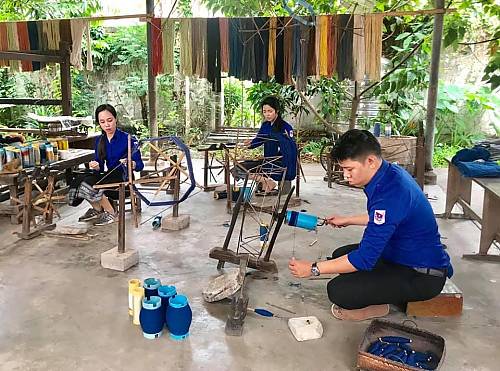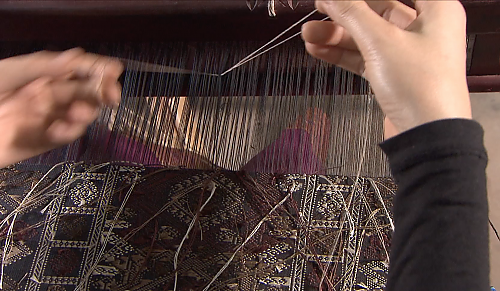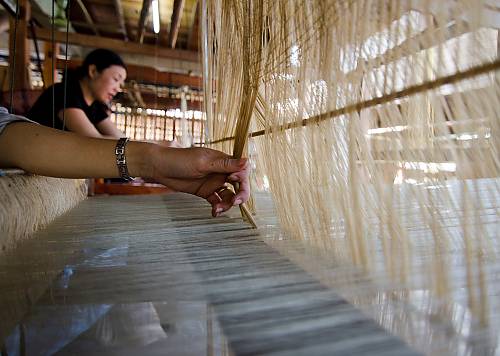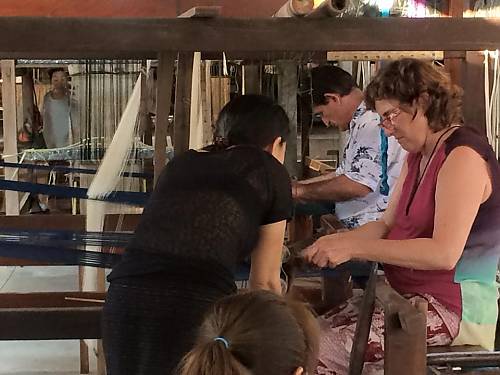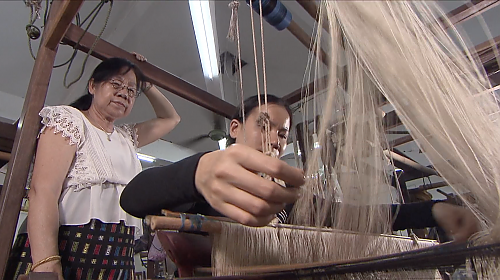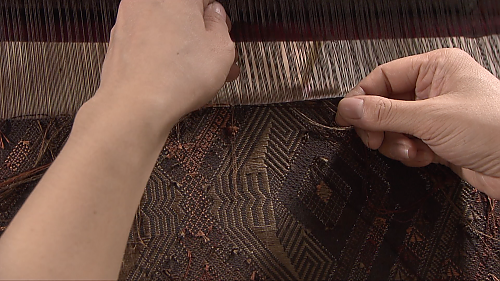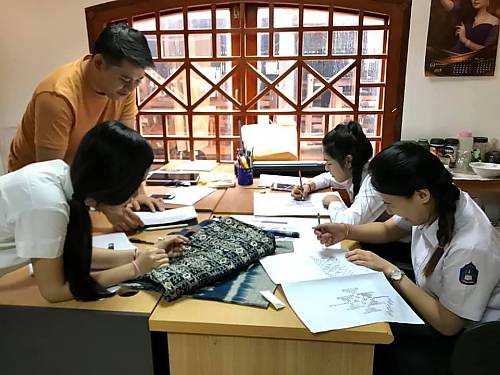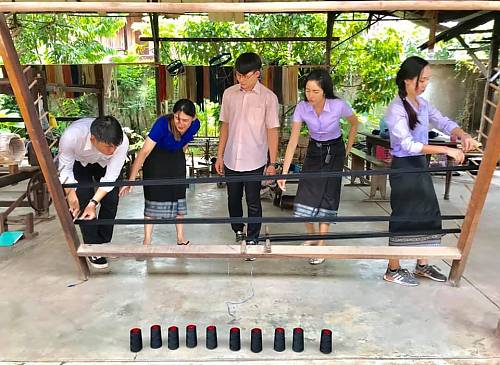Traditional craft of Naga motif weaving in Lao communities
Lao People's Democratic Republic
Inscribed in 2023 (18.COM) on the Representative List of the Intangible Cultural Heritage of Humanity

The Naga is a mythical, serpent-like creature that lives in rivers. Lao people believe that Naga are ancestors that watch over them. To show their respect, they add Naga motifs to different objects, the most common of which is textiles through weaving. Naga motifs are woven by hand using a traditional wooden loom. The motif is created during the weaving process; it is neither embroidered nor printed. The patterns can be woven in silk, silk organza and cotton, and traditionally the Naga’s body is woven in white or a solid colour, with bright colours used for the crest to symbolize the creature’s supernatural powers. The centuries-old practice is transmitted informally within families, and in vocational centres, cultural centres and universities. Textiles with the Naga design are used throughout a person’s life. For instance, Naga motifs are used on newborn blankets and carrying cloths to protect the infants from evil. Adults wear the motif in their daily lives and for important ceremonies or official events. The Naga motif is also woven into the couple’s wedding attire to bless them and bring prosperity. Many women prepare Naga motifs to wear when they die, believing the powerful image will send them to heaven.
